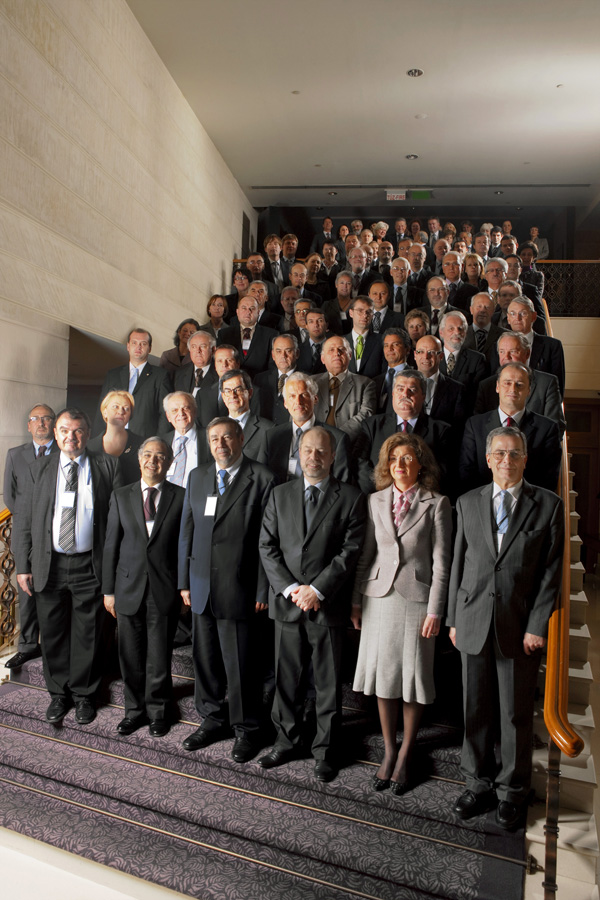The EU Contact Committee held its annual meeting in Budapest between 30 November and 1 December 2009

In 2009 the State Audit Office of Hungary hosted the annual meeting of the professional cooperation network consisting of the Heads of SAIs of EU Member States and the President of the European Court of Auditors. The Heads of SAIs of EU Candidate Countries (Turkey, Croatia and the former Yugoslav Republic of Macedonia), as well as representatives of EUROSAI, the INTOSAI Development Initiative and SIGMA attended the event as active observers.
As part of the professional programme, in the framework of a half-day seminar, participants discussed the issue of the role of an SAI in assisting the government measures in response to the financial-economic crisis. It was concluded that most of the SAIs reacted quickly, adjusted their audit plans to the new situation and put the auditing of crisis management measures into the focus of their activities. At the same time the specific activities carried out by the individual SAIs differ from country to country depending on the type and scope of the government anti-crisis measures and on the SAI legal mandate.
In addition, issues related to the management of EU funds having an impact on the work of SAIs - that resulted from the Lisbon Treaty recently adopted and entered into force 1 December 2009 - were presented.
Participants also had a vivid debate on SAIs’ independence. As a consequence, a Contact Committee statement was drafted to urge the EU institutions and Member States parliaments to take all measures in order to preserve and ensure that the functioning of independent supreme audit institutions is safeguarded as foreseen in the Lima and Mexico Declarations and the Lisbon Treaty.
Participants also discussed the EU-related reports presented by the Member State SAIs on the audit of energy-performance certificates and of the management systems of the Structural and Cohesion Funds; the activities of the Contact Committee working groups and the Network of the SAIs of Candidate and Potential Candidate Countries; the ongoing and future activities of the cooperation framework; as well as the organisational issues of the cooperation.